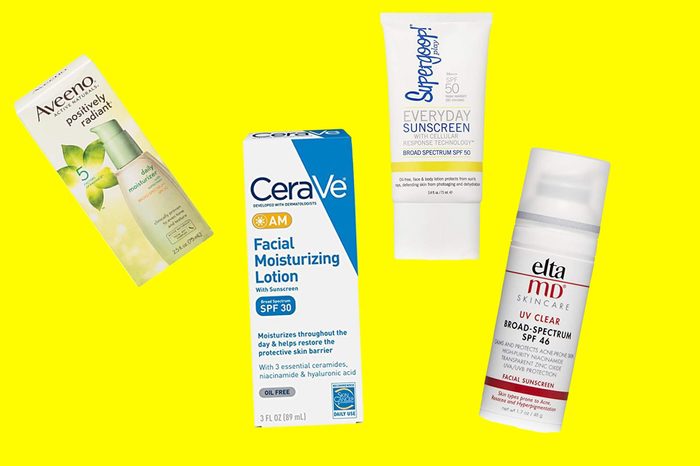
Physical versus chemical sunscreens
Protecting your skin from the sun goes far beyond simply slathering on sunscreen. While this is undoubtedly a first and important step in your skin-care routine, not all sunscreens are created equal. Some come in higher SPFs, which determine how well they protect your skin from the sun, as well as different sets of ingredients. The two main types of sunscreens are physical and chemical. “Physical sunscreens sit on the top of the skin and deflect or scatter damaging UV rays away from the skin and are mainly made up of titanium dioxide and zinc oxide,” explains Dendy Engelman, MD, New York City-based dermatologist. “Chemical sunscreens work by absorbing UV rays, converting them into heat and then releasing, and mainly consist of oxybenzone, octinoxate, octisalate, octocrylene, homosalate, and avobenzone, or a combination of these.” The best way to determine which sunscreen will work best to protect your skin and treat other concerns you may have such as oiliness, dryness, or signs of aging, is to choose a brand that’s formulated for your skin type. Read on to find out which one is ideal for you.
Find out the 10 sunscreen myths that make dermatologists cringe.
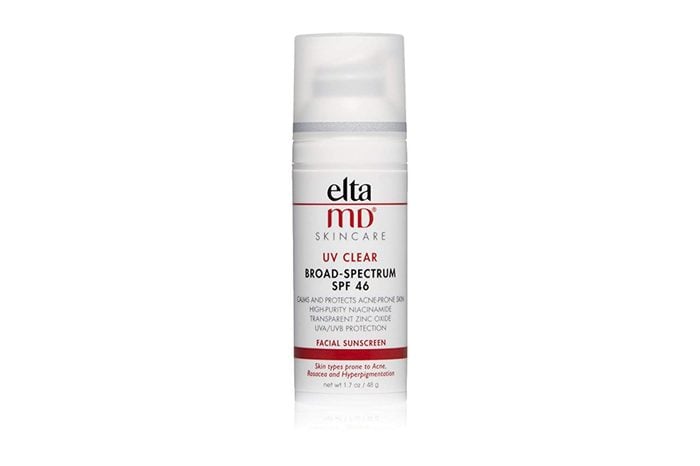
Normal skin
Those blessed with normal skin can use pretty much any chemical or physical sunscreen for daily use. Tsippora Shainhouse, MD, a Beverly Hills-based dermatologist, suggests looking for a product labeled “broad-spectrum,” which means that it protects against both UVA and UVB. “For days when you are just ducking in and out of the office, SPF 15 can suffice, but otherwise, look for products with SPF 30+,” she adds. “Chemical, lotion sunscreens are usually more cosmetically elegant for everyday use, but micronized physical sunscreens can look sheer on most skin types, too.”
Try: EltaMD sheer SPF 46, Coppertone Clearly Sheer Faces SPF 30 or Neutrogena Ultra Sheer Dry Touch SPF 85
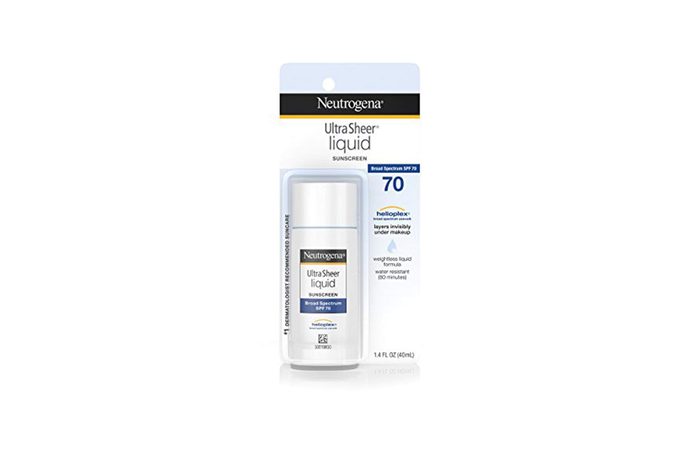
Oily skin
If your skin tends to be on the oily side no matter what, you’ll want to be especially careful when selecting your sunscreen, since many brands can make already oily skin appear even greasier. “Oily skin does best with formulas with gel or alcohol or with lighter lotions,” says Dr. Shainhouse. She also recommends selecting broad-spectrum protection that utilizes ensulizole as the UVB blocker, since it’s the least greasy. “Minerals can be drying and may help keep skin looking more matte during the day, so stick with chemical formulas if you want the best looking and feeling results.” She also recommends using a mineral powder sunscreen, like Colorescience Sunforgettable Mineral SPF 50 Sunscreen Brush, over your makeup to help reduce mid-day shine.
Try: Neutrogena Ultra Sheer liquid sunscreen SPF 50 or La Roche-Posay Anthelios 60 Body and Face Sunscreen Melt-In Milk Lotion, SPF 60 with Antioxidants
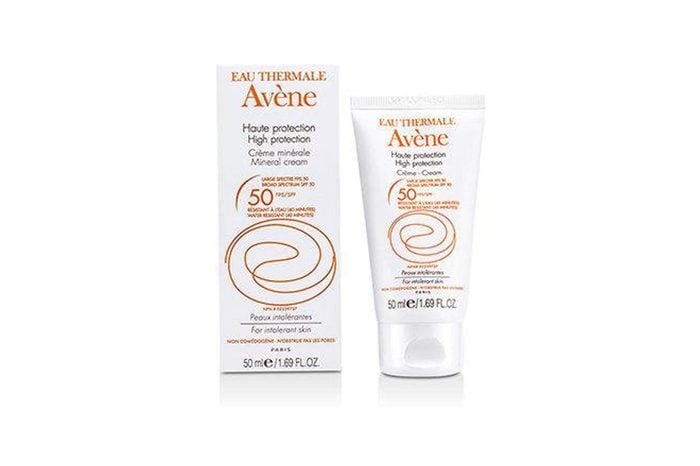
Dry skin
While most people associate dry skin with age, people of all ages, especially those prone to eczema or sensitive skin, can have it. Still, for any age group, sunscreen is non-negotiable in helping treat, replenish, and rejuvenate dry skin. “For those with dry skin, I recommend everyday moisturizers that contain sunscreen and provide the skin with soothing emollients and the sun protection,” says Joyce Imahiyerobo-Ip, MD, director of cosmetic dermatology at South Shore Medical Center in Massachusetts. “However, if you find that your moisturizing lotion is not hydrating enough, then a simple trick is to take a bland thick moisturizing cream and mix it with a sunscreen and apply to the face and body.” Here’s how to know whether your skin products are secretly damaging your face.
Try: a combination of Avéne High Protection Mineral Cream, SPF 50 and Vanicream Skin Cream
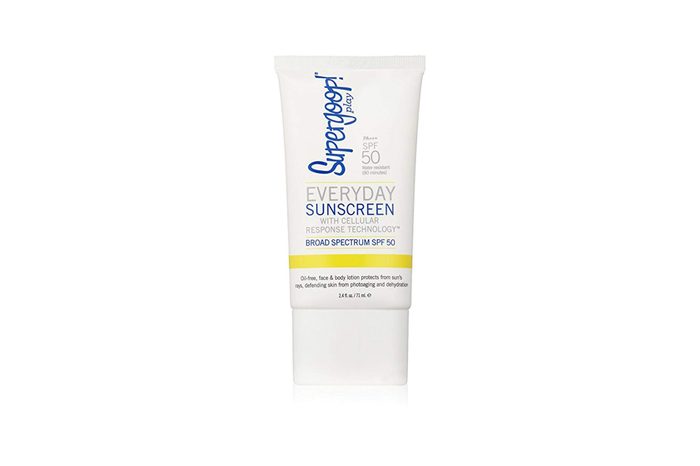
Combination skin
If you have combination skin, you’re probably dealing with certain areas of your face being oily (namely, your T-zone, or your forehead, nose, and chin) and certain parts being more on the dry side. The unevenness makes using any face product a challenge. When it comes to sunscreen, Joshua Zeichner, MD, director of cosmetic and clinical research in dermatology at Mount Sinai Medical Center in New York City, recommends erring on the side of a lighter product, as not to weigh down the oily T-zone. “Supergoop Unseen Sunscreen SPF 40 has a unique texture, somewhere between a serum and a gel, and dries totally weightless on the skin,” he says. “It is light enough for the oily areas, but smooth enough for the dry parts of the face.”
Try: Supergoop! Everyday Sunscreen with Cellular Response Technology SPF 50
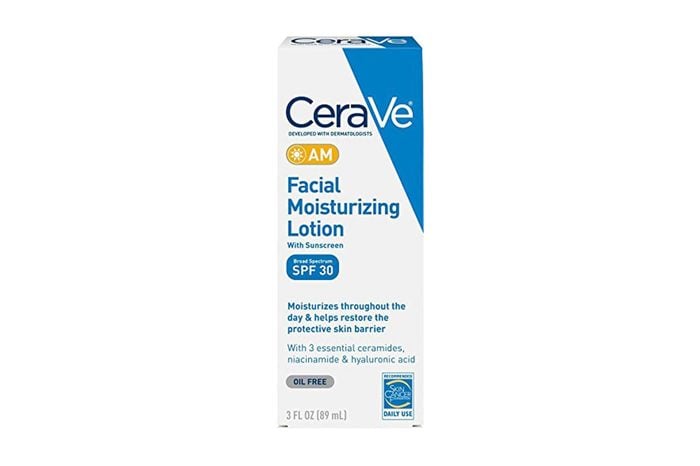
Acne-prone skin
“One huge mistake that those with acne make is avoiding moisturizers and sunscreens because they think that these products will make them break out, but this is actually the opposite of what will happen,” says Dr. Imahiyerobo-Ip. “If a person is prone to acne, overly dry skin will actually cause their bodies to secrete more sebum (oil) and result in more breakouts.” That’s why she recommends that her patients with acne-prone skin opt for a light moisturizer with sunscreen and choose products touting the “non-comedogenic” label, which means that it will not cause acne. Find out the sunscreen mistakes almost everyone makes.
Try: CeraVe Facial Moisturizing Lotion AM SPF 30 or Neutrogena Clear Face Liquid Lotion Sunscreen For Acne-Prone Skin
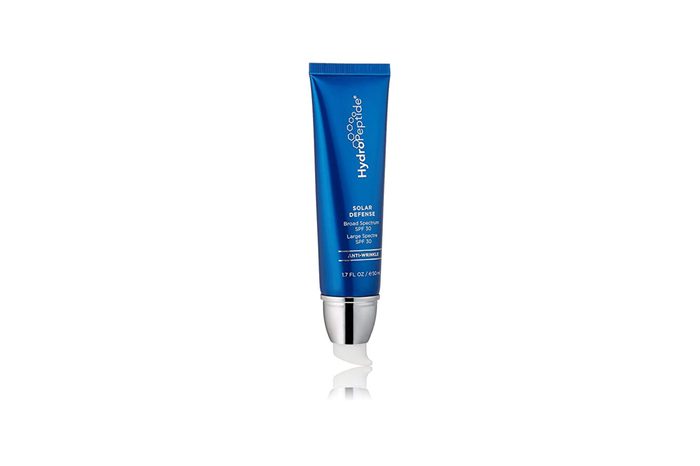
Mature skin
All experts agree that the best product you can use on skin of any age (but especially aging skin) is sunscreen. “As the skin ages brown spots, hyperpigmentation, and fine lines and wrinkles can appear and skin loses its ability to retain moisture the way it once did,” explains Dr. Imahiyerobo-Ip. She prefers broad-spectrum cream-based physical blockers containing micronized zinc and titanium oxide for maximum brown spot protection. “We now know that skin cancer and skin aging are not only caused by ultraviolet UVB and UVA, but also the infrared rays, so in order to maximize skin cancer protection and prevent skin aging you may want to opt for a sunscreen that also has infrared protection.” Here’s how the skin ages through the decades.
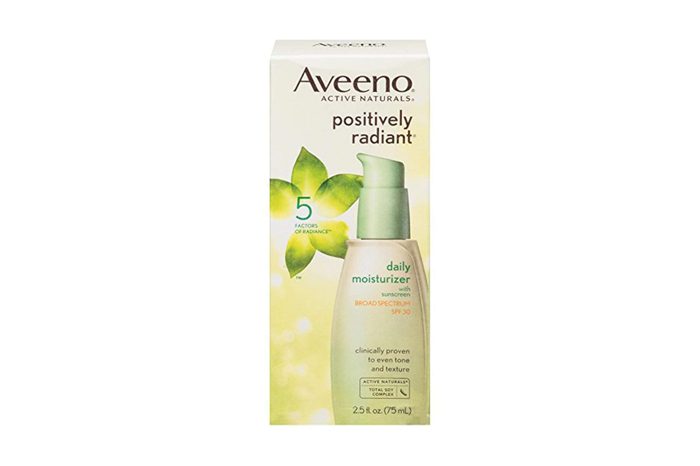
Darker skin
“Mineral sunscreens can appear chalky on darker skin types, leaving a blue or white veil haze on the skin,” says Dr. Shainhouse. That’s why she recommends chemical sunscreens to her patients with darker skin tones because it tends to look more natural. “Look for sheer broad-spectrum coverage in a lotion or cream, depending on your skin needs,” she adds. “As a bonus, consider products with soy to help even out skin tone.” Find out which sunscreens top dermatologists actually use on themselves.
Try: Aveeno Positively Radiant Daily Facial Moisturizer With Broad Spectrum SPF 30
